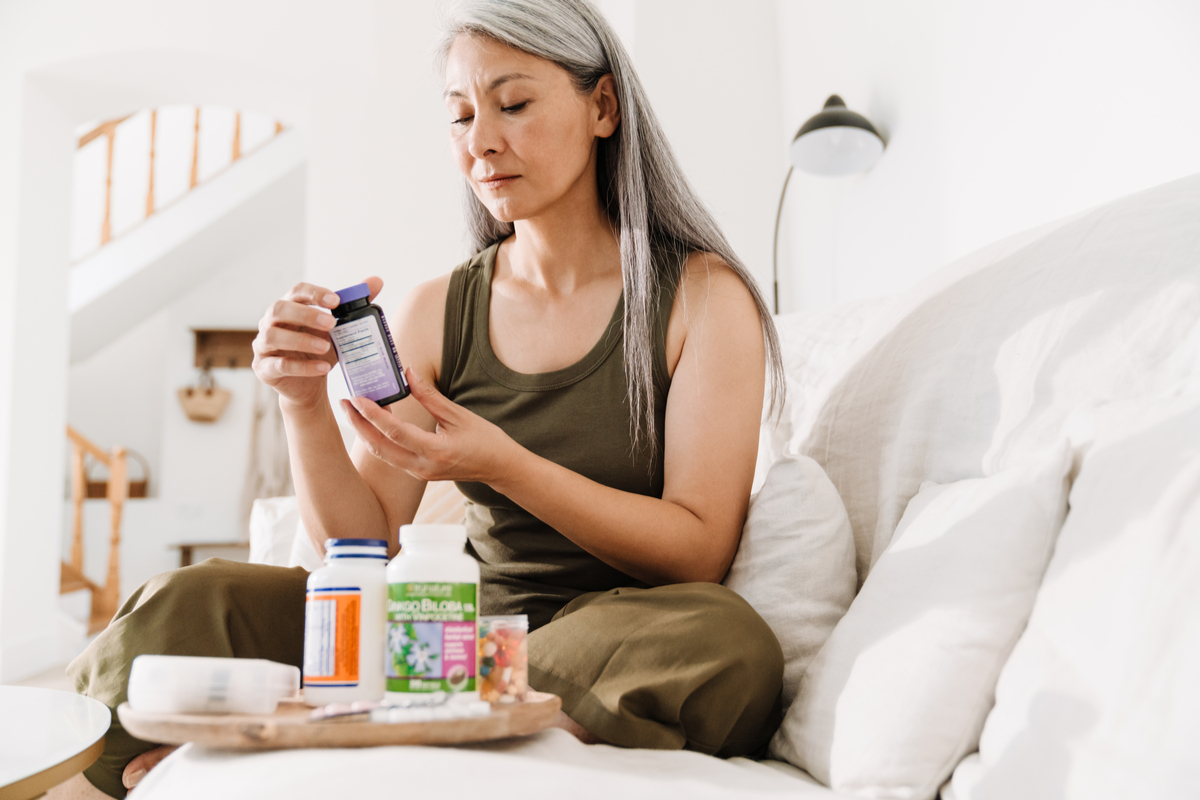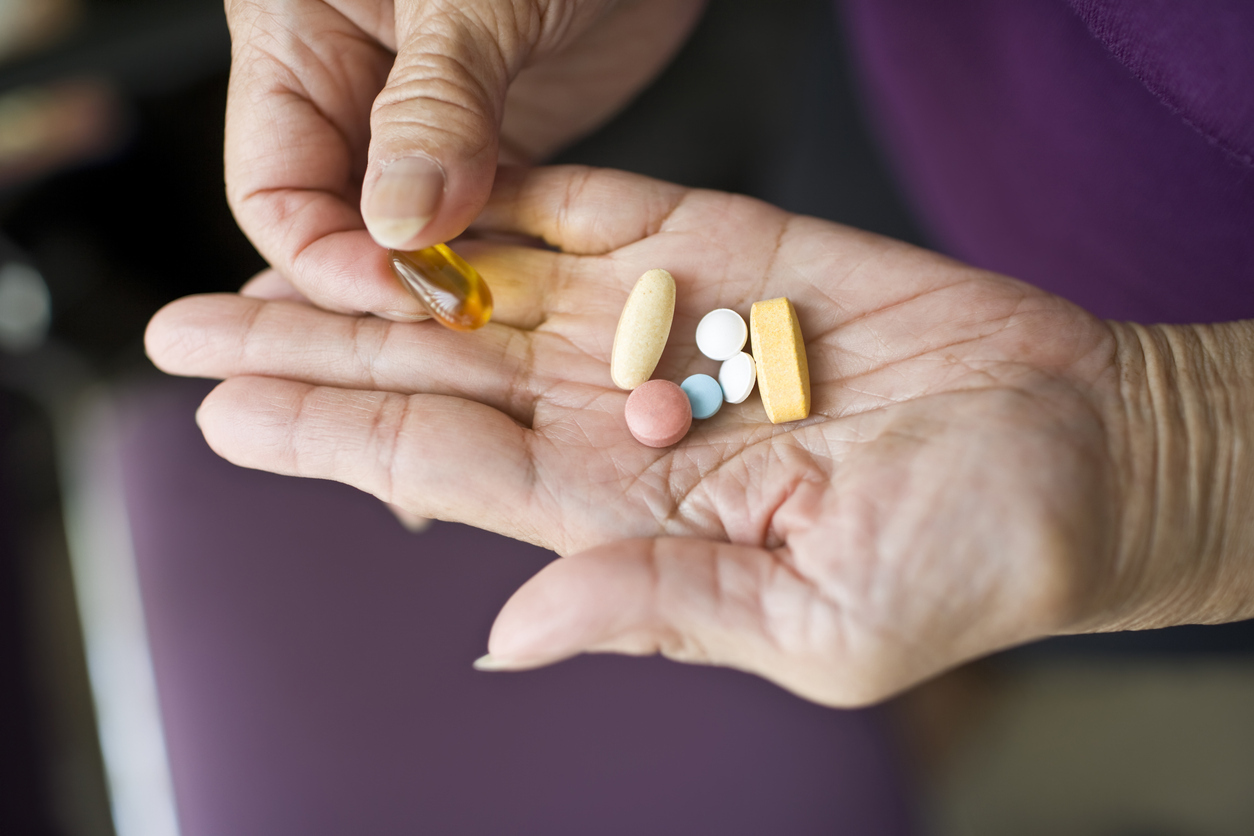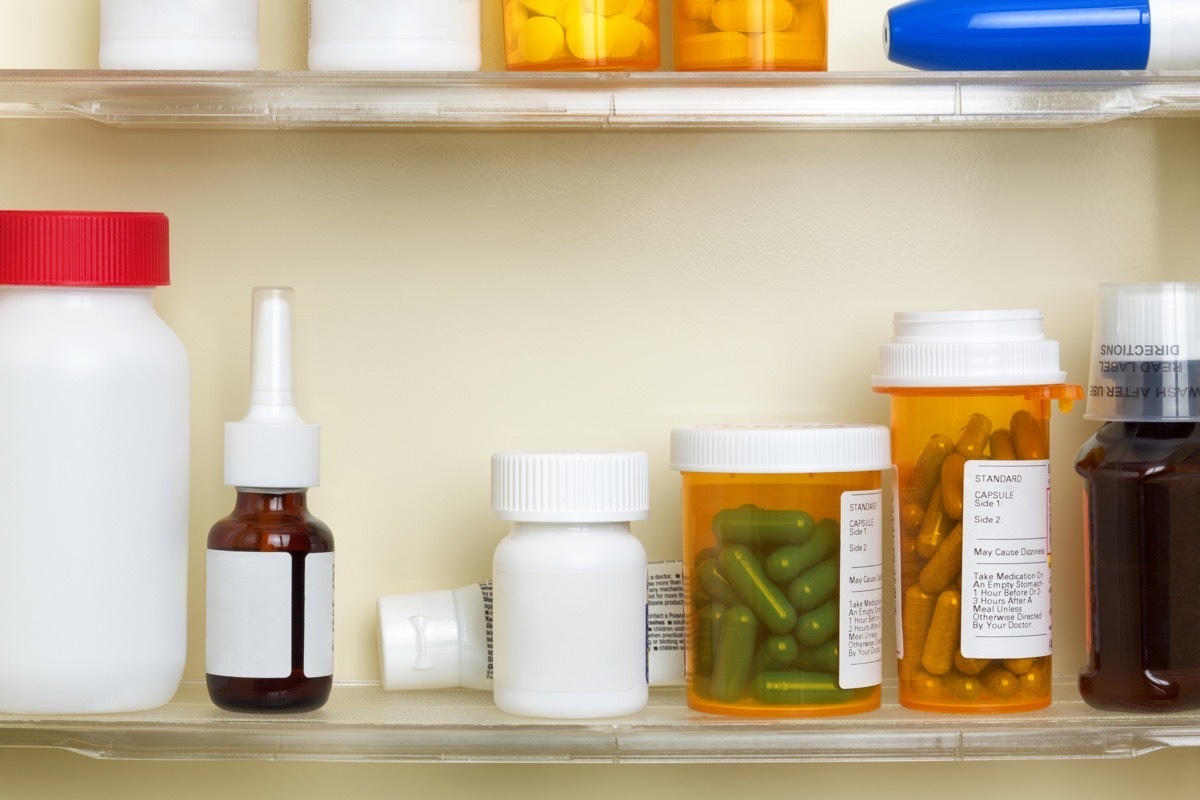Ang pagkuha ng masyadong maraming sink ay maaaring humantong sa ganitong uri ng kakulangan
Ang labis na popular na suplemento ay maaaring maging sanhi ng ilang hindi kasiya-siyang sintomas.

Our bodies only require a small amount of zinc, but a little of the trace mineral goes a long way. The Mayo Clinic says zincplays an essential part in immune system function, cell growth and division, wound healing, taste, smell, digestion, and has even been found to reduce the risk of COVID and certain age-related diseases. Although our bodies don't produce zinc naturally, most people can get the amount they need by eating a diverse diet. Foods with high levels of zinc include shellfish, meat, beans, nuts, milk, and poultry.
Of course, zinc also comes in the form of a dietary supplement, and if you're concerned you're not getting the recommended daily amount—11 mg per day for adult men and 8 mg for women, according to the Harvard School of Public Health—you might be in the habit of popping a pill. As is the case with most good things, however, overconsumption of zinc can have harmful repercussions. Read on to discover what unexpected deficiency too many zinc supplements can create, what symptoms to watch for, and who is most at risk.
RELATED: This Is the One Vitamin You Should Never Take, Doctors Say.
Adding too many zinc supplements to your diet can lead to a copper deficiency, experts say.

Taking too much zinc is cited as one of the most common causes of copper deficiencies, along with inadequate copper intake or your body's inability to absorb it. "This is because zinc and copper compete for absorption in the stomach, with zinc being the usual winner," says Healthline. "As a result, copper isn't absorbed."
The reverse is also true, meaning a ratio of too much copper compared to zinc—whether from food, supplements, or even contaminated water—can also lead to dangerous health problems, according to Healthline. They say symptoms of copper toxicity can include headaches, nausea, diarrhea, and depression, among others. A healthy balance of these two minerals are necessary in order to feel your best.
Look out for these signs that your copper levels are too low.

In adequate amounts, copper gives you energy, aids in brain and tissue development, helps produce red blood cells, regulates heart rate and blood pressure, ensures correct nervous system function, and helps you maintain a healthy metabolism. And although many people don't get the recommended amount of copper in their diets, true copper deficiencies are uncommon, according to the National Institutes of Health (NIH). People who Do. develop a copper deficiency, however, are likely to quickly notice the signs that something isn't right.
Hindi gaanong matindisymptoms of copper deficiency include fatigue, muscle weakness, hypopigmentation (patches of lighter skin due to pigment loss), thinning or prematurely gray hair, and cold sensitivity, Healthline advises. More serious issues, which are linked to insufficient copper levels over a long period of time, include weak or brittle bones, cognitive deficits such as problems with learning and memory, lack of coordination while walking, and even vision loss, say the experts at NIH. They also note that some experts believe copper deficiency may play a role in Alzheimer's disease, although this is still being studied—and some evidence associates high levels of copper with the condition, as well.
Only take zinc supplements if they are recommended by your doctor.

Unnecessarily including too much zinc in your diet by taking supplements increases your risk of developing copper deficiency symptoms. "Therefore it is important not to take supplemental zinc unless it is known that the diet is low in foods containing zinc or a zinc deficiency is confirmed," the Harvard School of Public Health states on its website. Registered dietitians or your primary care physician will be able to evaluate whether your intake is low, and tell you if additional supplements are required.
Striking the perfect balance between the two trace minerals is important in order to avoid both short and long-term symptoms of deficiency or toxicity. If you are already taking a daily supplement of either zinc or copper, The Mount Sinai Health System recommends that you add a supplement of the other to your routine, with a ratio of 8 to 15 mg of zinc for every 1 mg of copper.
RELATED: For more up-to-date information, sign up for our daily newsletter.
These groups of people may be more at risk of developing a deficiency.

People who are more likely to lack healthy copper amounts Isama ang mga taong may sakit sa celiac, sakit sa menkes, o mga malnourished, sabi ng nih. Ang mga buntis na kababaihan, vegetarians, at mga taong may karit na selula o gastrointestinal na sakit ay maaaring inireseta ng mataas na dosis ng mga suplemento ng zinc para sa iba't ibang mga kadahilanan, at kailangan ding maging maingat sa mga kakulangan sa tanso. AE0FCC31AE342FD3A1346EBB1F342FCB.
Kung sa palagay mo ay maaaring nakakaranas ka ng alinman sa mga sintomas na may kinalaman sa kakulangan ng tanso, kontakin ang iyong doktor-at laging kumunsulta sa isang propesyonal sa pangangalagang pangkalusugan bago idagdag ang alinman sa zinc o tanso supplement sa iyong pang-araw-araw na diyeta.

Iraq digmaan beterano ay ibinigay sa buhay ngunit pagkatapos ng isang kitty sa likod ng mga bushes nagbago ang kanyang buhay magpakailanman

4 pinakamahusay na teas para matulog, ayon sa mga eksperto
